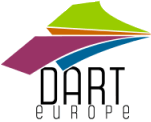Mostrar el registro sencillo del ítem
Transition to Adulthood Autonomy Scale for Young People: Design and Validation
| dc.contributor.author | Bernal-Romero, Teresita | |
| dc.contributor.author | Melendro, Miguel | |
| dc.contributor.author | Charry, Claudia | |
| dc.date.accessioned | 2024-02-06T09:03:33Z | |
| dc.date.available | 2024-02-06T09:03:33Z | |
| dc.date.issued | 2020-03-20 | |
| dc.identifier.citation | Bernal Romero T, Melendro M and Charry C (2020) Transition to Adulthood Autonomy Scale for Young People: Design and Validation. Front. Psychol. 11:457. doi: 10.3389/fpsyg.2020.00457 | es |
| dc.identifier.issn | 1664-1078 | |
| dc.identifier.other | https://www.frontiersin.org/articles/10.3389/fpsyg.2020.00457/full | es |
| dc.identifier.uri | http://hdl.handle.net/20.500.12020/1212 | |
| dc.description.abstract | Given that autonomy is a fundamental process in the transition to adulthood, there are several scales that measure the concept as a main construct or a constituent feature of broader constructs. However, most of these scales are based on a notion of autonomy focused on the individual, while the proposed scale aims to incorporate the idea of the individual mediated by others and society. This article aims to show the results of the design and validation process of the Transition to Adulthood Autonomy Scale (EDATVA), which was developed using this approach. A group of 61 items with a Likert-type response scale of four options was used on a sample of 1,148 Spanish and Colombian individuals, aged between 16 and 21. A systematic process was performed using an exploratory factorial analysis. Additional indexes were calculated from the Rasch Model. The matrices obtained from the factorial analysis gave rise to a 4-factor structure comprising a total of 19 items with weights >0.3. In the case of Spain, the KMO test returned a value of 0.80 and in the case of Colombia, 0.83. In the Rasch model, the Item Separation Reliability (0.99) indicates that the items constitute a well-defined variable that meets the local independence assumption. Cronbach’s alpha for the Spanish sample was 0.86 and for the Colombian sample 0.85. In conclusion, this new scale consists of four dimensions: self-organization, understanding context, critical thinking, and socio-political engagement. The scale is easy to use and interpret, especially considering the age range of the target population and its possible uses within the contexts of assessing and intervening in young people’s behavior. Due to its characteristics, it can be used in family, educational, and social contexts. This scale is valuable for research because its optimal psychometric properties provide an alternative way of understanding autonomy. | es |
| dc.description.sponsorship | This paper documents the study performed by the research groups Psychology, Life Cycle and Rights, from the Faculty of Psychology at the Universidad Santo Tomás (Colombia) and TABA International Research, Social Inclusion and Human Rights, UNED (Spain), directed by Professor Teresita Bernal Romero. This study has been funded through the Research Project on the Design and Validation of a Transition to Adulthood Autonomy Scale (Call 2018 FODEIN Research Development Fund Universidad Santo Tomás, Colombia. Project Code 18645020) and Project EVAP-SETVA 2015– 2020 (Assessment of Personal Autonomy—Assessment in the Transition to Adulthood) UNED, funded by the Autonomous Region of Madrid General Directorate of Family and Minors, Fundación ISOS, Reina Sofia Center for Adolescence and Youth (FAD) and the Fundación Santa María. | es |
| dc.language.iso | en | es |
| dc.publisher | Frontiers Media | es |
| dc.rights | Attribution-NonCommercial-NoDerivatives 4.0 Internacional | * |
| dc.rights.uri | http://creativecommons.org/licenses/by-nc-nd/4.0/ | * |
| dc.title | Transition to Adulthood Autonomy Scale for Young People: Design and Validation | es |
| dc.type | article | es |
| dc.identifier.doi | doi: 10.3389/fpsyg.2020.00457 | |
| dc.journal.title | Frontiers in Psychology | es |
| dc.page.initial | 84 | es |
| dc.page.final | 93 | es |
| dc.rights.accessRights | openAccess | es |
| dc.subject.area | Ciencias de la Educación | es |
| dc.subject.keyword | autonomy | es |
| dc.subject.keyword | young people | es |
| dc.subject.keyword | assessment | es |
| dc.subject.keyword | orientation | es |
| dc.subject.keyword | transition to adulthood | es |
| dc.subject.keyword | validation | es |
| dc.subject.keyword | scale | es |
| dc.subject.keyword | autonomía | es |
| dc.subject.keyword | jóvenes | es |
| dc.subject.keyword | transición a la vida adulta | es |
| dc.subject.keyword | validación | es |
| dc.subject.keyword | escala | es |
| dc.subject.unesco | 61 Psicología | es |
| dc.subject.unesco | 5312.04 Educación | es |
| dc.subject.unesco | 6102.01 Psicología Evolutiva | es |
| dc.volume.number | 11 | es |





